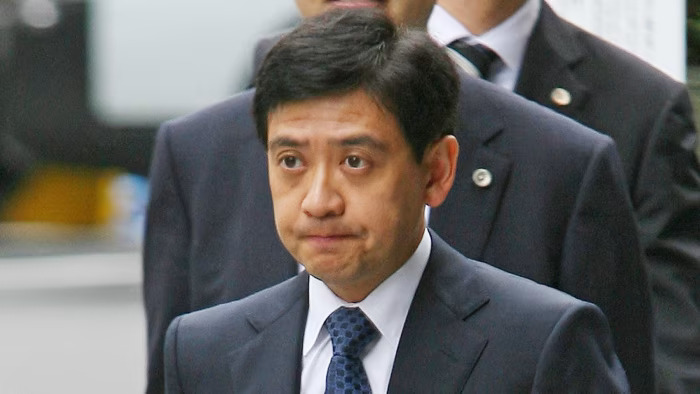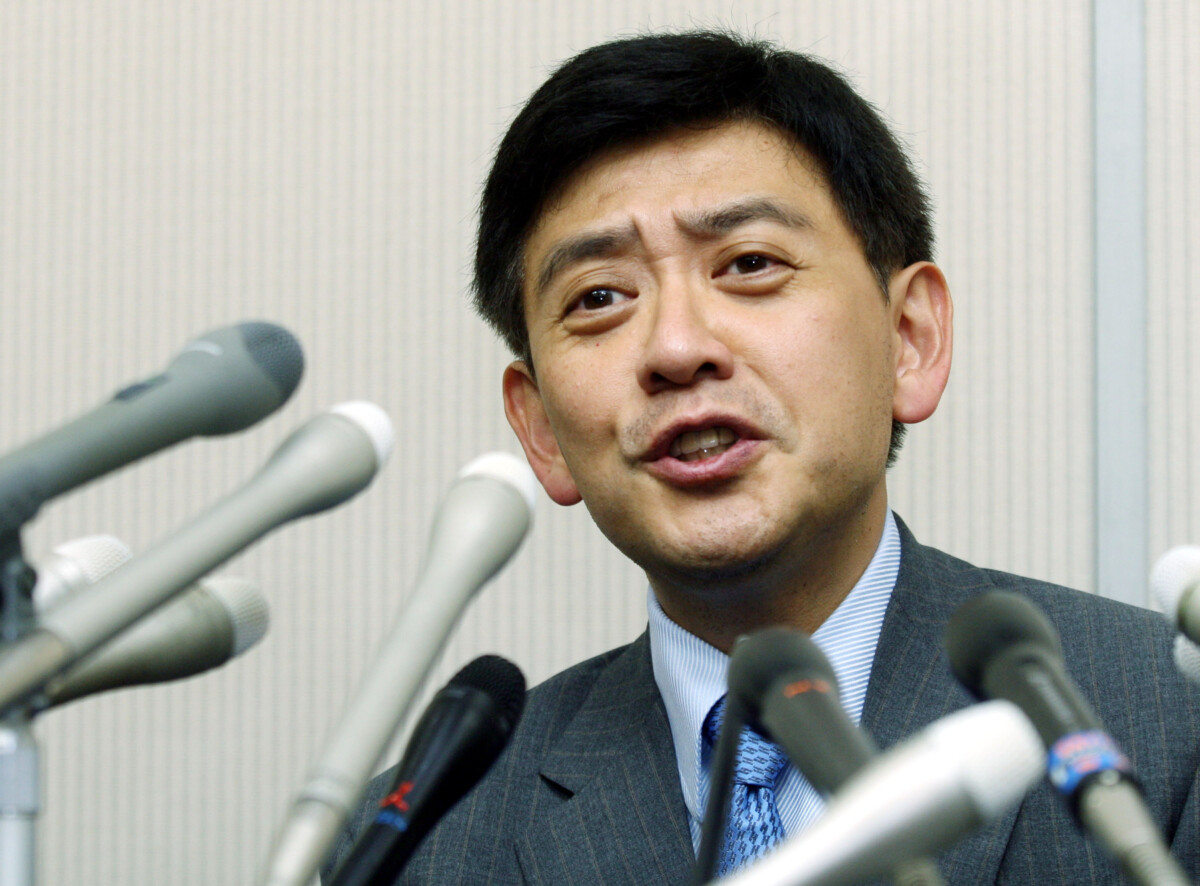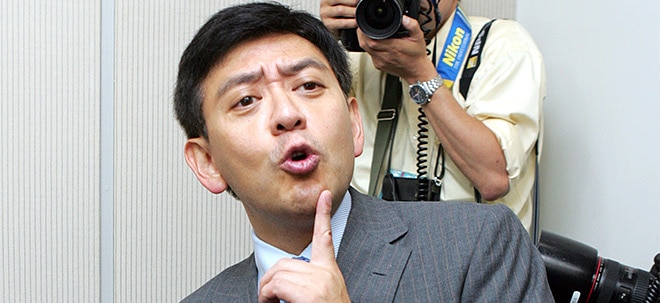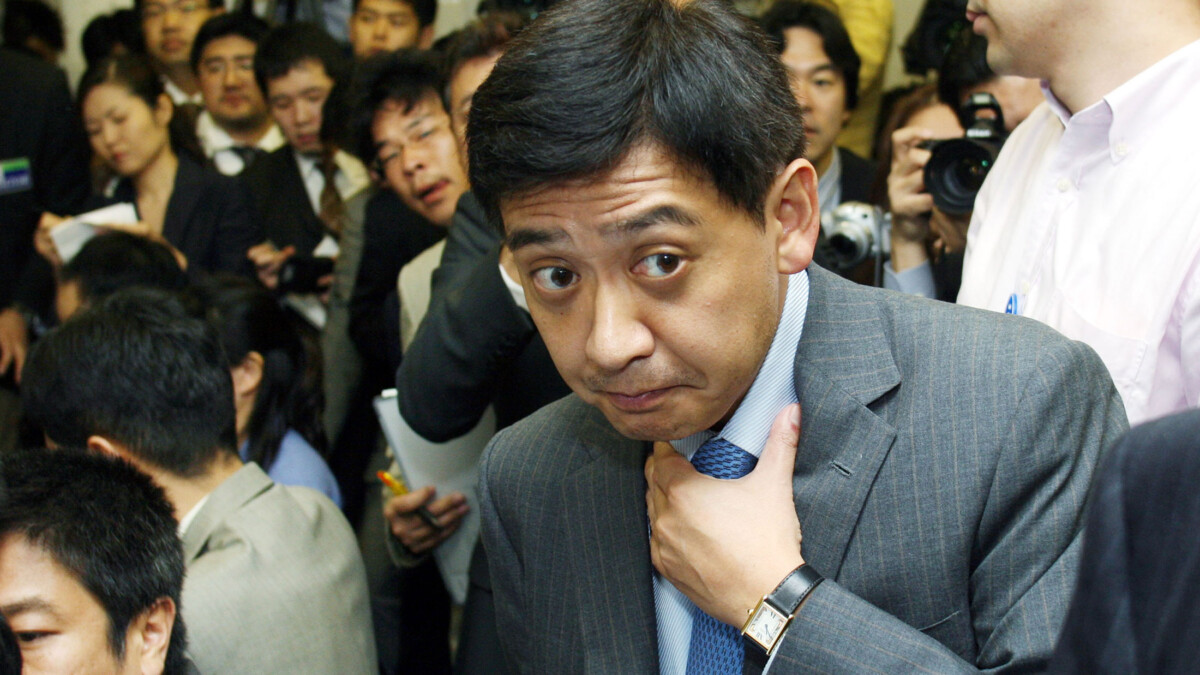Introduction
Witnessing the confluence of financial misdeeds and the breakdown of the economic bubble, the Livedoor scandal that surfaced in Japan in 2006 marked a turning point in the nation’s business history. Claims of securities fraud and market manipulation against Livedoor, a meteoric rise in the ranks of Japan’s online companies run by the flamboyant entrepreneur Takafumi Horie, shocked investors and triggered a shakeup in the country’s approach to corporate governance. The crisis transformed Japanese corporate ethics, which exposed the shadowy side of aggressive accounting techniques and led to extensive regulatory reforms. Not only did this incident damage Livedoor’s great reputation, but it also caused the Japanese financial markets to become more vigilant and watchful, which had long-lasting effects on the country’s business culture and regulatory structure.
Overview Of The Insider Trading Scheme

The Proposal To Acquire Nippon Broadcasting System (NBS) By Livedoor
Founder Takafumi Horie oversaw the quick growth of Livedoor, a well-known Japanese internet company. The media was one of several areas where the corporation sought to expand its assets and exert more influence. As part of its growth strategy, Livedoor targeted Nippon Broadcasting System (NBS), a radio operator. After much deliberation, Livedoor made a buyout approach for NBS in February 2005. A corporate scuffle broke out after Livedoor made public its plan to acquire Nippon Broadcasting System. Livedoor and NBS stock prices were also affected by the bid.
Murakami’s Background And Trading Practices
A prominent Japanese activist fund manager, Yoshiaki Murakami fought for better treatment of shareholders and higher investment returns. The significance of Murakami’s fund, MAC Asset Management, in shaping corporate governance was substantial. Allegedly, Murakami learned of Livedoor’s attempt to acquire NBS from confidential sources. Rumor has it that Murakami used this knowledge to his advantage while trading Nippon Broadcasting stocks.
Murakami allegedly bought shares in Nippon Broadcasting System worth ¥10 billion before Livedoor’s proposal was publicly announced. People claim that Murakami made a ton of money from his smart stock trading as the business drama played out and share values increased. In spite of the claims, Murakami maintained that he was acting lawfully and denied any misconduct at every turn. The main points of Murakami’s defense were his denial of insider trading charges and his advocacy on behalf of shareholders.
Earnings From Manipulating Share Prices
The investment made by Murakami yielded large gains when the stock prices of NBS rose due to the bidding procedure and business conflict. These gains, according to the prosecution, were based on insider information and hence illegitimate. Stock prices of both Livedoor and NBS were significantly affected by the highly publicized corporate dispute, leading to speculation in the market.
The trading tactics of Murakami were investigated by the prosecution, who claimed that he used his influence as a significant shareholder to take advantage of market fluctuations. Authorities have speculated that Murakami took advantage of the confusion over the takeover proposal by strategically timing his trades.
Notable People Involved
Yoshiaki Murakami
Career and Background: Murakami went from being a bureaucrat to a powerful activist fund manager who pushed corporations to boost shareholder returns. He became notorious outside of the finance world for his aggressive techniques. As an activist shareholder and fund manager, Murakami used his considerable wealth to influence company choices; this was on display during the Livedoor controversy.
Takafumi Horie
As a prominent figure in the takeover attempt for NBS, Livedoor’s flamboyant founder Horie was intricately involved in the process. Because he and Murakami both represented a revolutionary kind of capitalism in Japan, their collaboration only served to heighten the scandal’s fascination. The takeover bid’s legal ramifications were brought to light by Horie’s subsequent conviction for securities fraud and sentencing.
Court Cases And Penalties

The Detention Of Murakami And The Resulting Legal Proceedings
Arresting Yoshiaki Murakami little over a year prior to his imprisonment was the first act in the lengthy legal drama involving him. In connection with Livedoor’s attempt to acquire Nippon Broadcasting System, the formerly formidable activist fund manager Murakami was subject to insider trading allegations. Murakami was a well-known and divisive personality in Japan’s corporate world, and his arrest sent shockwaves across the financial and corporate sectors due to his aggressive tactics.
Murakami’s Allegations
Prosecutors accused Murakami of insider trading, claiming that he had used his roles as activist shareholder and fund manager to get confidential information about Livedoor’s bid. According to the accusations, Murakami abused his powerful positions in the financial sector in a way that was unethical and contrary to legal and ethical norms.
Penalties And Penalties Fines
Murakami Gets Two Years In Prison
Murakami was handed a two-year prison term by the Tokyo District Court following a comprehensive review of the facts and arguments presented in his case. The seriousness of the accusations and the court’s resolve to tackle financial market insider trading were evident in this, dealing a heavy legal blow to Murakami.
Fine For Murakami Hits Record High Of ¥1.2 Billion
Along with the prison term, Murakami was also fined an unprecedented ¥1.2 billion, which is the highest amount ever levied in Japan for financial penalties related to insider trading cases. This hefty judgment demonstrated the court’s determination to punish individuals found guilty of engaging in financial market manipulation for their own benefit.
Murakami’s Fund, Mac Asset Management, Was Fined ¥300 Million
Murakami’s activist investing techniques not only impacted MAC Asset Management, his fund, but also dealt a financial blow to it. The ¥300 million fine levied against the fund underscores the organization’s shared accountability for the misconduct associated with its founder.
Murakami’s Shareholder Activist Role
The Activist Strategies Of Murakami
As a shareholder activist, Yoshiaki Murakami became famous for his aggressive techniques in influencing company decisions. Two defining features of his approaches to changing the dynamic between shareholders and their companies were:
Putting Pressure On Businesses To Raise Returns To Shareholders
As part of his strategy, Murakami would put pressure on businesses to increase profits for their shareholders. This typically manifested as calls for more generous dividend payments or for firms to make riskier investments with their surplus funds. His strategy ran counter to the conventional wisdom in Japan, where companies valued stability and long-term partnerships more than quick profits for stockholders.
Investing In Specific Businesses
Murakami became a major stakeholder after astutely acquiring holdings in several companies, which he used to increase his power. In addition to giving him a voice, this put him in a position of power inside the company, where he could demand things. Companies with large cash reserves were Murakami’s investing targets because he believed in their unrealized potential to generate shareholder value.
Impact On Japan’s Corporate Sector
The norms and status quo were shook to their foundations by Murakami’s vigorous shareholder activism, which had far-reaching ramifications for corporate Japan:
Using Confrontational Strategies To Affect Executives
Executives who were not accustomed to Murakami’s strong style were terrified by his confrontational style. Murakami daringly challenged corporate executives, upsetting the usual consensus-building and stable Japanese business culture. In the face of Murakami’s demands for reforms that went against established procedures, executives found themselves in unfamiliar territory.
The Shifting Periphery Of Japanese Capitalism
Murakami and Takafumi Horie of Livedoor became icons of a more renegade and Western-influenced capitalism. Their actions disproved the stereotype of Japanese businessmen as meek and conformist wage earners. More people started talking about how important it is to boost shareholder value and how the business landscape has to be more dynamic and shareholder-friendly as a result of Murakami’s activism.
The Fund And Objectives Of Murakami
MAC Asset Management
Prior to his incarceration, Yoshiaki Murakami was a prominent figure in the financial scene with a fund, MAC Asset Management, valued at ¥444 billion. The fund’s high worth was a direct outcome of Murakami’s influence in the financial markets, which led to substantial fines and subsequent legal proceedings.
The unique investment approach of the fund was to acquire shares in firms that had large cash reserves. Murakami’s strategy included putting pressure on these businesses to boost dividends or step up their investment game. Traditional Japanese corporate practices tended to be more frugal with capital, and this technique posed a challenge to that.
Businesses That Murakami’s Fund Is Eyeing
Among Murakami’s noteworthy targets was the railway operator Hanshin Electric Railway and Hankyu Holdings. By selectively investing in these companies, the fund was able to exert influence over their corporate decisions due to its position as a large stakeholder. Murakami hoped that by putting pressure on these businesses, they would get more out of their money and boost returns for shareholders.
A major participant in Japan’s financial system, the Osaka Securities Exchange, was another notable target. As part of his larger plan to reform corporate procedures and place an emphasis on shareholder value, Murakami established his fund with the intention of influencing the exchange’s policies and operations. Murakami aspired to extend his influence beyond individual companies to the institutions that oversaw Japan’s financial markets, and the fund’s involvement with the Osaka Securities Exchange demonstrated this ambition.
Evidence And Rebuttals
The Statement Of Takafumi Horie
The Role Of Horie In Livedoor’s Attempt To Acquire It
A key figure in the insider trading controversy was the ostentatious Livedoor founder, Takafumi Horie. Horie spoke about how he helped organize and carry out Livedoor’s attempt to acquire Nippon Broadcasting System. His analysis revealed vital details on the bid’s mechanics and revealed how Livedoor and Murakami had worked together to gain corporate power.
The Verdict Against Horie For Securities Fraud
His personal legal issues tarnished Horie’s credibility, even though he testified in Murakami’s favor. Horie has a history of convictions for securities fraud, which relates to the irregularities at Livedoor. Both major players in the affair were subject to legal repercussions as a result of his conviction, which further complicated the issue.
The Defense And Testimony Of Murakami
Claiming Nothing Wrong
Throughout the court hearings, Yoshiaki Murakami firmly denied any misconduct. Murakami asserted his innocence and denied the accusations of insider trading, even though the prosecution had offered proof to the contrary. To counter the prosecution’s story about his taking use of insider information, his defense argued that he traded stocks based on publicly available information.
Statements That Change And Absence Of Regret
The fact that Murakami altered his testimony throughout the trial presented difficulties for his defense. At a nationally broadcast news conference prior to his arrest, Murakami admitted to insider trading. However, he later recanted, saying he had just confessed to prevent difficulties for others. The court criticized his credibility in part because of this shift in attitude and his apparent lack of regret, both of which were major points of the trial.
How People Feel And What The Media Coverage Is Like

Effects On Industry And Markets In Japan
The knowledge that Yoshiaki Murakami had participated in insider trading shook the foundations of Japanese finance and business.The event caused people to lose faith in the reliability of the financial system and raised their level of anxiety. Due to increased prudence on the side of investors and market players, investment strategies shifted and corporate governance processes came under closer scrutiny in an effort to forestall similar catastrophes in the future.
The Symbolism And Image Of B. Murakami In Japan
The Japanese public’s perception of Yoshiaki Murakami changed dramatically. His participation in the controversy damaged his reputation, which he had previously held in high regard as an unwavering champion of shareholder rights. The example of Murakami, which came to represent the perils of radical shareholder activism, raised questions about the moral boundaries of such strategies within the context of Japanese corporate traditions.
Public Opinion And Media Coverage
News agencies in Japan closely followed every development in the case, giving the trial enormous media coverage. Commentators and journalists examined how Murakami’s moves could affect shareholder activism, corporate governance, and Japan’s image in the global marketplace. The public’s view of Murakami changed from adulation to mistrust, mirroring how the scandal affected the public’s view of powerful businesspeople more generally.
How Regulators Have Reacted And What Has Changed
Stricter Requirements For Investor Reports
The Livedoor insider trading case prompted swift action from Japanese regulators, who tightened investor reporting requirements. The government took action to make investors disclose newly acquired shareholdings of 5% or more within two weeks after they realized there needed to be more openness and responsibility. This shift in regulation was an attempt to curb the manipulative trading and speculative trading that followed Murakami’s deeds.
Effects On Financial Markets And Investor Actions
The public spotlight on the crisis and the government’s response shocked Japanese investors and the financial markets. Activism investors now face new challenges as a result of stricter reporting regulations, which force them to be more open and honest in their dealings. As a result of the regulatory adjustments, investors grew more wary and compliance-conscious, showing a dedication to protecting the stability of the financial markets. Following the Livedoor scandal, Japan’s regulations regarding corporate governance and investor protection were subject to a more thorough evaluation.
Conclusion
The Livedoor scandal, a watershed moment in Japanese corporate history, exposed the country’s financial markets. Livedoor founder Takafumi Horie’s planned financial deception. It led to the downfall of the internet company and caused regulators to reassess their control. There has been a need for more openness and stronger enforcement of securities rules in Japan following the incident, which revealed shortcomings in the country’s corporate governance. Impacting regulatory changes and raising awareness of corporate responsibility, the effects went beyond Livedoor. Japan strengthened its financial laws and fostered a more robust corporate landscape in the quest of market integrity and investor confidence, ultimately inspired by the Livedoor affair.
Frequently Asked Questions
1. The Livedoor Insider Trading Scandal: Who Was Involved?
An activist fund manager named Yoshiaki Murakami played a pivotal role in the controversy. His attempt to acquire Nippon Broadcasting System was the basis for his indictment on allegations of insider trading.
2. How Was Insider Information Obtained By Murakami?
According to the allegations, Murakami traded shares after learning about Livedoor’s takeover bid. Using his dual roles as a shareholder activist and fund manager, he took advantage of the bid’s secrecy.
3. Tell Me About The Accusations Leveled Against Murakami?
Murakami was accused of insider trading, which means he allegedly utilized his positions as activist shareholder and fund manager to his advantage.
4. What Effect Did It Have On The Japanese Market And Business Community?
The scandal’s effect on Japan’s financial markets led to a rethinking of corporate governance standards and an increase in openness. Because Murakami used aggressive tactics that challenged conventional wisdom in business, the executives were concerned.
5. How Was The Regulatory Environment Altered Following The Scandal?
Stricter reporting requirements were enforced by Japanese regulators two weeks following the Livedoor Insider Trading Scandal, requiring investors to reveal major shareholdings. The new regulations aim to increase transparency and prevent market manipulation through the use of insider knowledge.


